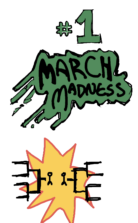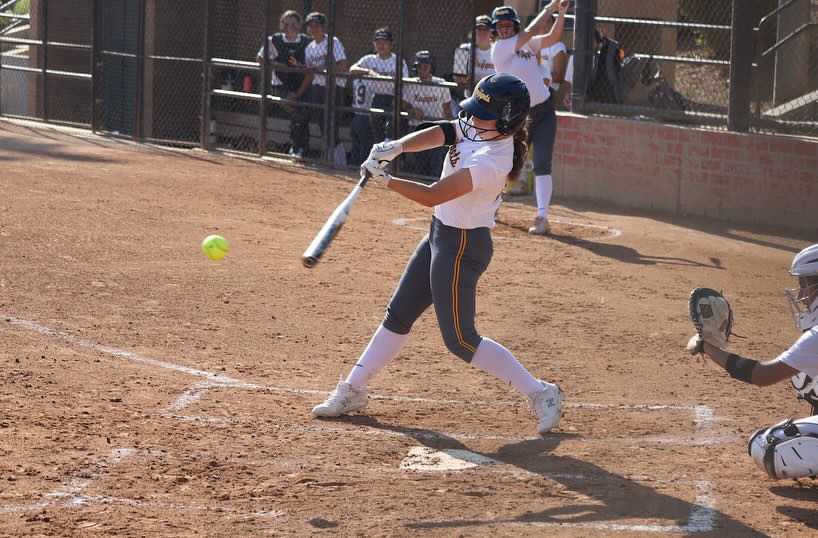
Gabriel Anagnoson (Cornell Swim)
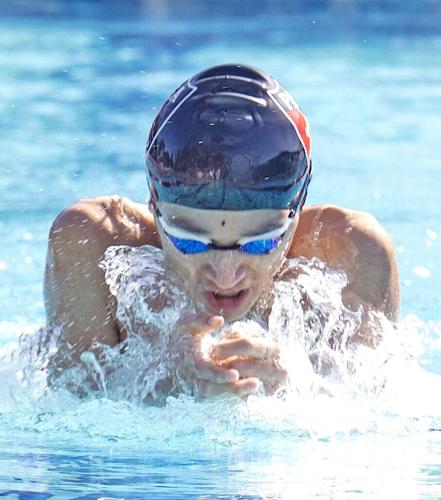
Why did you choose swimming as your sport and what keeps you motivated?
I choose swimming, it’s just what I’ve been doing growing up. I started swimming when I was around ten years old, so I’ve been swimming for around 8 years now. It was what I was best at throughout middle school, and I decided to do it in High school because I thought it would be fun to keep going as well as keep trying to get better.
What are your goals for college?
I definitely want to make it into the NCAAs which is very tough. It’s basically the hardest thing to make in the country for college. I’m pretty sure Cornell has had only one guy make it in the past four years. So that would be pretty cool to make over the next four years if I can.
Seth Smith (Cleveland State Swim)
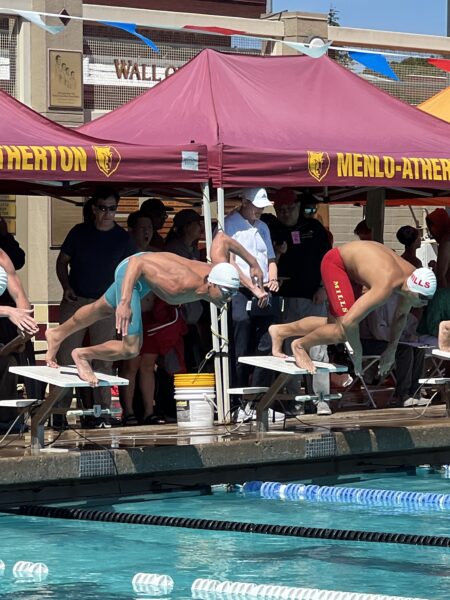
Why did you choose swimming?
I think it was sometime in 2016 I was watching the Olympics and Michael Phelps was there, it was his last Olympics and that just inspired me to start swimming and throughout the years I kind of just fell in love with swimming and practicing and getting better gradually all the time. And what keeps me going is that it’s very rewarding when you put in a lot of work and you don’t really see a lot of results immediately, but once you start seeing it you kind of get this rush and you just want to keep racing and getting faster.
What was the reason behind choosing Cleveland State?
One of the reasons is that they are D1 and they flew me out for an official visit, showed me around the campus, showed me around the city and I really felt like this is really somewhere I could see myself living for the next four years, I just loved the environment and the coaches
Sherman Lee (Boston University Swim)
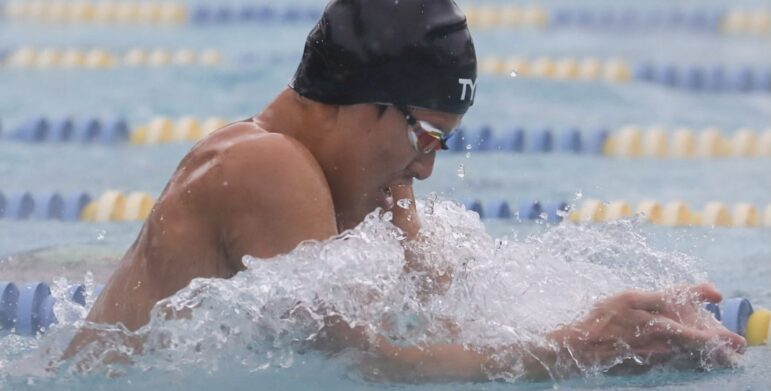
Why did you choose Swimming?
When I was younger, basically my parents were like you have to do a sport and so I used to do soccer, but I became really boring. Then I tried tennis and golf for a bit, and then I switched to swimming because I thought it seemed fun. As a kid I really enjoyed it, and enjoyed trying to improve and I just stuck with it.
What inspires you to keep going?
Honestly, it’s just wanting to improve and be better. And also qualify for higher level swim meets because I can see over practice nine times a week, I can see my progressive improvement as I’m being dedicated to practicing each week. And then over time, I can see an improvement in my times.
Why did you choose Boston University?
So originally, I was looking to swim at Swarthmore College. I was going to go Division 3, But then I looked into Boston University. And then when I got accepted. It’s a great school, and it’s also a good location, and it has good internships for my major. And then on top of that, I spoke to the coach prior, and he said, there was a chance to walk on, so after I bought it, I talked to him about walking on, and I just decided that walking on here and going to one would be better for my major, and I can still swim.
Chin-Yi Kong (Princeton Fencing)
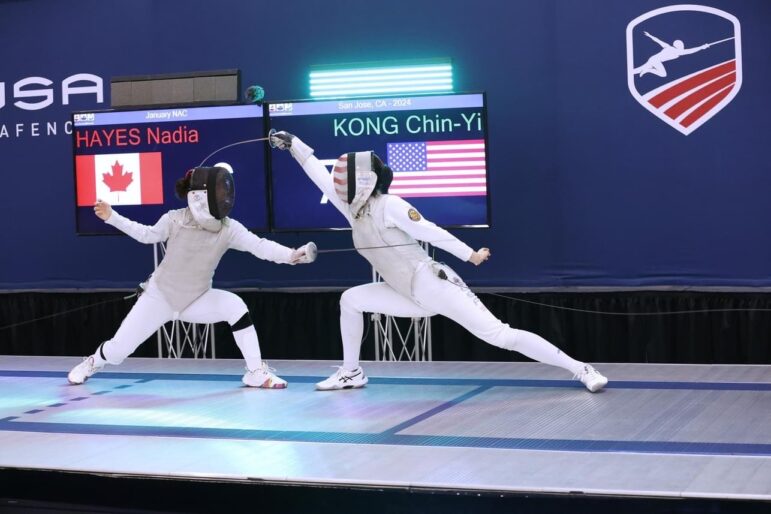
Why did you start fencing and what drives you to keep going?
I started fencing because my dad fenced in college himself. I would try every type of sport when I was a kid, and eventually we got to fencing so here I am now. Something that keeps me going is that I really like meeting people from fencing. It’s a really good community and I like that about fencing.
Why did you choose Princeton?
Originally I reached out to around seven schools, then I narrowed it down to four and then I finally decided on Princeton. The area is really beautiful. It’s near New York but not exactly in it, and they have a really good fencing program there and they’re also super nice. I had some other options which were Hopkins, Yale, and I was talking to Colombia but I ultimately decided to go with Princeton.
What did the recruitment process look like?
In June going into my Junior year, I reached out to a whole bunch of schools so I reached out to a lot of coaches and they got back to me and then we stayed in email contact for a while, and I also had a couple of zoom calls and phone calls before I met with the coaches in real life. I had an official visit to Princeton in the fall of my Junior year and then I committed in December of my Junior year.
Hunter Kwan (Manhattan Volleyball)
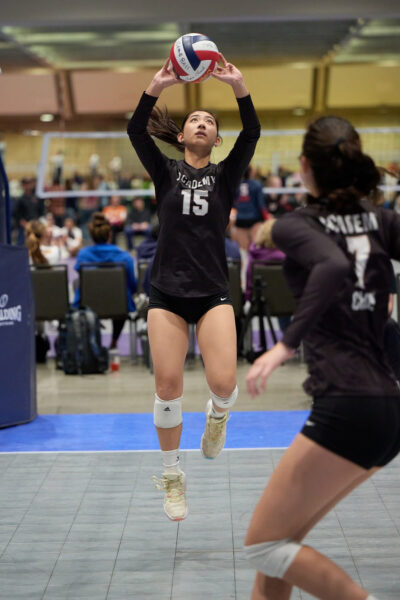
What were some of the challenges you faced?
There’s ups and downs because every athlete can experience burnout and stuff. Also, different coaches can change how you perceive yourself in the game. It’s also a struggle because it will take up a lot of time out of your schedule, so it’s a big commitment. Definitely the support of my dad [helped me overcome these challenges, because the main thing I struggled with was confidence. And in the recruitment process, I wasn’t very confident in myself and what offers I would get, but my father was supporting me and telling me I deserve the opportunities that I’m getting.
What are some of the things that help you become the player you are right now?
Definitely my dad, my family, and my coaches. There’s a lot of coaches that I relied on for support and a different viewpoint on how I am. They tell me what I need to fix, what I need to improve on and what’s working. Also, mindset, because there’s a lot of ways that sports can affect you in a positive or negative way. And it really just depends on [how] you make it.
Does playing this sport help you any way outside of the sport?
It brought me out of my shell a lot. I was more introverted but through the sport you’re forced to be, [by] meeting a lot of people, going to a lot of new places [because] we travel a lot. [By] being more independent…you have to maintain both being an athlete and being a student, and keeping a good balance.
Branden Antiporda (La Verne Basketball)
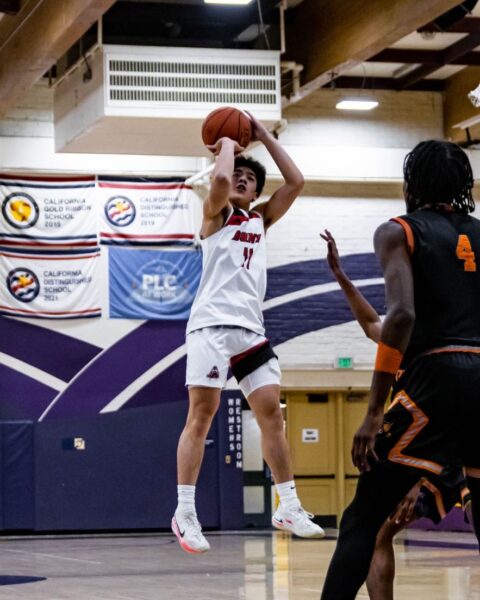
Why did you choose La Verne?
I chose La Verne because I felt that it was a place where I could thrive academically and athletically. Academically, I liked it because it offers a really good kinesiology program with a lot of hands-on, internships, and then it’s a small school so I can get good focus education, because of the small classes and everything. And then I also don’t have to worry about the majors being impacted. Athletically, when I was being recruited, they showed a lot of interest, and I felt like I could definitely play at the D3 level. It’s always been a dream to play college basketball, so I guess La Verne was a spot where I could…chase my dreams academically and athletically.
What were some of the challenges you faced?
I messed up my knee freshman year and my ankle sophomore year. So that was a setback that I had in my time being out, and I was like “damn I really love basketball”…[I overcame this by] having a lot of support from my family and friends has motivated me, and I would set goals for myself and just try and work day by day…Because I lost a lot of strength on my time out, so I would set weight goals, like I would try and squat this much.
What are some of the things that help you become the player you are right now?
My parents, my family and friends, and my coaches, just everyone around me supporting me. Something that I learned was to fall in love with the process, to know what my priorities are, to keep them straight because I have a goal. My parents always told me that my path is not the same as other people’s path, so that I will have to make a lot of sacrifices and commitments that other people wouldn’t have to do.
Lequan Wang (UC Davis Golf)
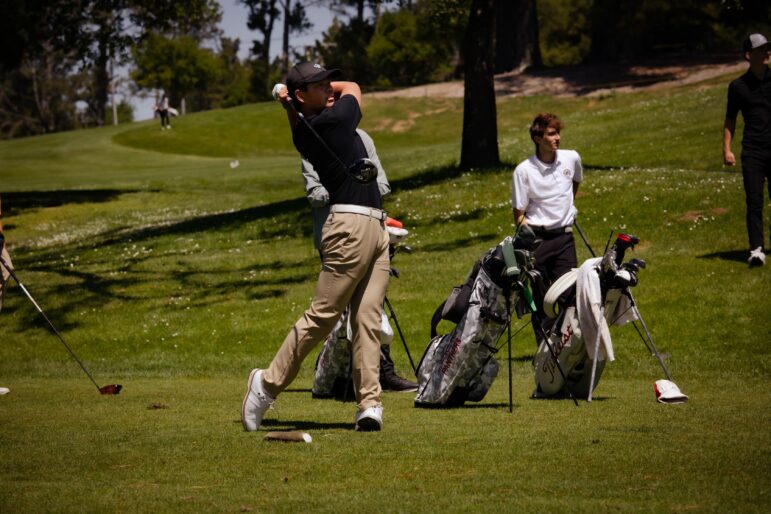
How did you get into golfing?
I moved here to the States when I was nine, as a gift my dad got me a set when I was really little and then I became pretty good at it pretty quick so I just kind of kept going down that path. So now that I have expectations of college, you don’t know how far you’re going to make it so you just want to see how far you can make it.
Why did you choose UC Davis?
The other compelling options were Santa Barbara, Oregon State, and Cal Poly slo, but Davis overall had the best program. I didn’t have the best golf program strictly but it was a nice balance between my major because I want to major in biology, so Davis obviously one of the best biology programs in the nation is a nice backup option in case sports doesn’t work out for me.
What did the recruitment process look like for you?
So colleges started reaching out to me when I was a freshman but they’re not allowed to respond, so when I sent my emails out my sophomore and junior year. It was a lot of just emailing back and forth. You get their numbers, I had a few calls with them, you tell them your schedule so they can see what tournaments you’re playing and then they can come out and watch you play. If you play well, they’ll offer you a visit to their campus. That’s where you go there, meet the team, and practice with them.
Tevita Makoni Manukainiu (SJSU Football)
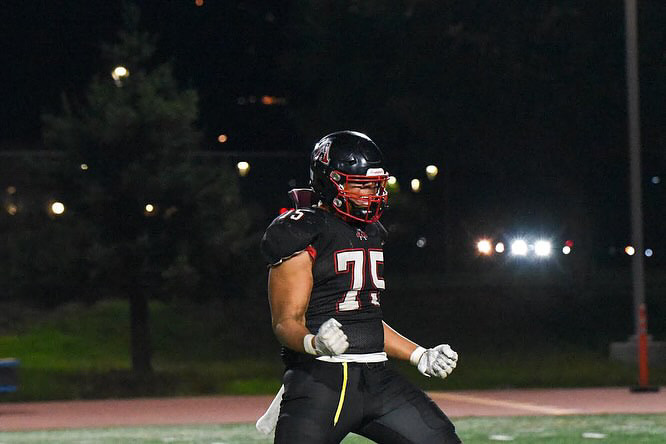
What did the recruitment process look like for you?
It was kind of hard getting exposure coming out of a small school like Aragon…most football players come out of Serra and Saint Francis…[To overcome this, I used ] social media and also [went] to camps…it’s not about who you know, but who knows you.
What do you think helped you become the player you are right now?
What helped me is you just gotta find a reason outside of football. You gotta ask yourself, why you do it, what you do. I really look at my mother, how she works every day. I see her like once a month. And I do this so I can see her more so my family doesn’t have to pay for my education and I’m really proud of that.
Did playing this sport help you anyway outside of the sport?
It showed me to have confidence and also taught me to be disciplined…how to stay level headed and not put myself on a pedestal. It just shows me to be humble. I’m very appreciative that I learned all of that.
Varsha Jawadi (UCSD Tennis)
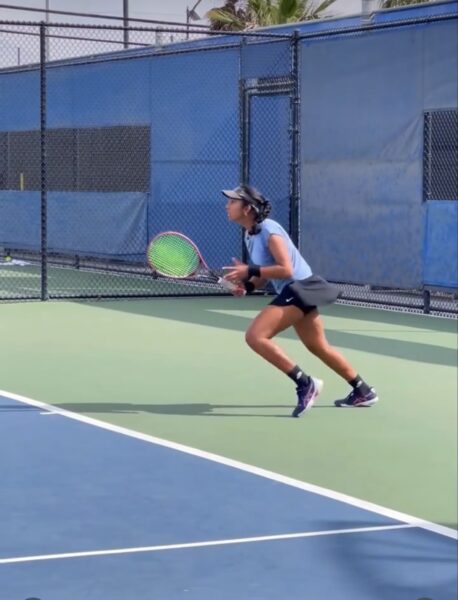
What got you into tennis?
Well I feel like initially, I started playing tennis when I was really young, because I was kind of exposed to it from a pretty young age. When I was four years old my sister was playing tennis so I wanted to play because I wanted to do what she did and be like the rest of my family. We would go out as a family and then I would try to play with them, but I was much smaller than them and I didn’t take tennis very seriously until I was around seven years old. I would go to camps and stuff like that so that’s how I started out. Now, I continue to play tennis because I love that feeling of competition and the intensity that comes with it. I feel like I’ve never really gotten that feeling anywhere else
What was the thought process behind choosing UCSD?
I had a couple of other options I was looking at but they were mainly on the East Coast and I really wanted to stay in California. So actually UCSD was my top choice by far, I visited there literally like five times and I love the campus so much and San Diego is an unbeatable location, it’s so pretty there. There’s so much to do, it’s right on the beach. I also really like the coach and the team. It seemed like the perfect school for me so I chose it because of the location, the team, their coach, the academics, literally every single thing.
What did the Recruitment process look like?
Recruiting for me was very stressful. It was really scary. Initially what most players do is you just email like a bunch of schools. I emailed as many coaches as possible just to get on their radar. That’s pretty much what I did after my sophomore year. During that summer I emailed a bunch of coaches, and then in my Junior year I started to narrow it down to where I wanted to go. I had seen the coach at a few tournaments so I went up to talk to him. I introduced myself to him and continued to email him a lot. I would update him on my results and I would tell him like I played here, and can you go watch me play here, and I just beat this player. And then in late October he called me and said, “were going to offer you the spot,” and I was super happy obviously
Rae D’Amato (CSU San Marcos Softball)
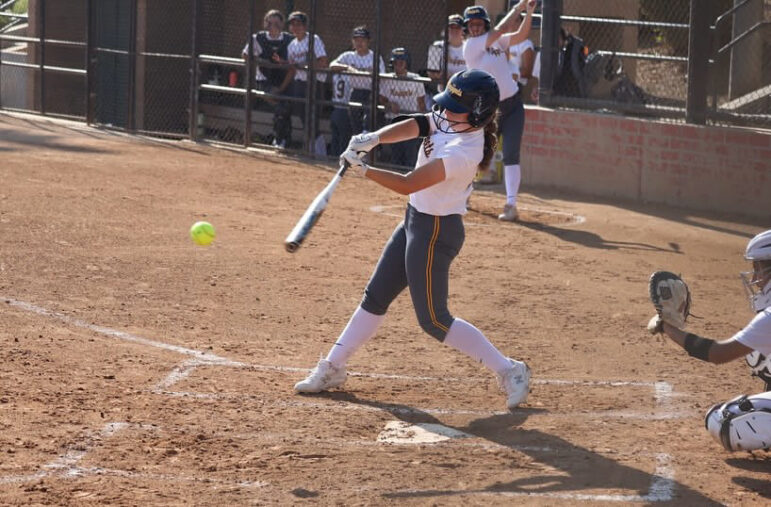
First of all, why did you choose Cal State San Marcos?
I chose Cal State San Marcos not only because it’s in Northern San Diego and because the campus is beautiful. It’s like 15 minutes from the beach. But also because when I went to visit it…when they offered me to come out and watch the team and everything, the coaches and players were just an amazing group of girls. And they were very supportive because it was me and another player there, and like it was very nerve wracking being there but they just really show [that] they care about everyone there. Also, because with the schooling, the coaches and counselors and everything are very supportive with helping everyone out and making sure everyone is not only succeeding in sports, but also in their academics as well.
What was the reason you started softball?
My mom played softball when she was younger, and she played in junior college at CSN. My dad played baseball and my family’s just super competitive. And then I started playing softball when I was around four. At first, it’s always been my mom and I sport, she was always there practicing with [me.] So I think just seeing her love for the sport grew into my love for the sport.
What were some of the challenges you faced?
I think my biggest challenge is so junior year is the main part to get recruited, and I broke my wrist during that year [playing high school basketball and I was out for all of junior year high school softball season], so it was really difficult just trying to come back for summer and the biggest part for recruiting for my sport. But then I [worked] through it [by recovering and doing PT and trying to get back in for summer ball club.] Then, I got committed in the fall of senior year so it was a little later and it was very stressful, but then also rewarding because it made me find my right pick for the school.
Daryn Schell (Toronto Water Polo)
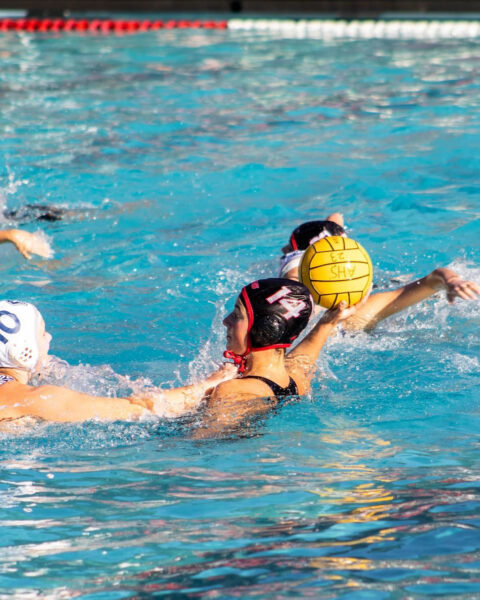
What did the recruitment process look like for you?
I had an account on NCSA which I know a lot of athletes use to get recruited. A platform where I could upload my highlights and give a base idea of what types of schools I’d be interested in. From there, coaches started reaching out to me after they saw my highlights, and I just emailed back and forth with a ton of different coaches. I had a bunch of phone calls. I went on a few visits, and then I narrowed it down to Toronto. After they invited me up to Canada to play with them in the National Stadium…None of the US schools allow you to do that.
What were some of the challenges you faced?
Definitely COVID was one because I started playing in seventh grade and then COVID started when I was in eighth grade and ninth grade so I had to take a year off pretty early on. So, when I started playing again after my break, late ninth grade…I just kind of had to relearn everything and I didn’t know how to do it. I also have nerve damage in my shoulder [from waterpolo overuse,] which I can’t really do anything about…[To overcome it,] I obviously spent a lot of time playing again and then I rejoined my club and I played for Aragon. And then I also joined a competitive swim team outside the school. Just to get faster and that definitely helped.
What are some things that you like about this sport?
I mean, I’ve always liked water sports more. I swam when I was little and then I paddleboard and surfing. So, I like being in the water, so that definitely drew me to wanting to try it because it’s something different. And then I really liked the swimming aspect…I just think it’s a lot more challenging than a lot of other sports that I’ve done. When I played soccer, I would just kind of sit around and not do anything, but for water polo even when you’re not doing anything you’re still like treading.
Pia Cho (NYU Track)
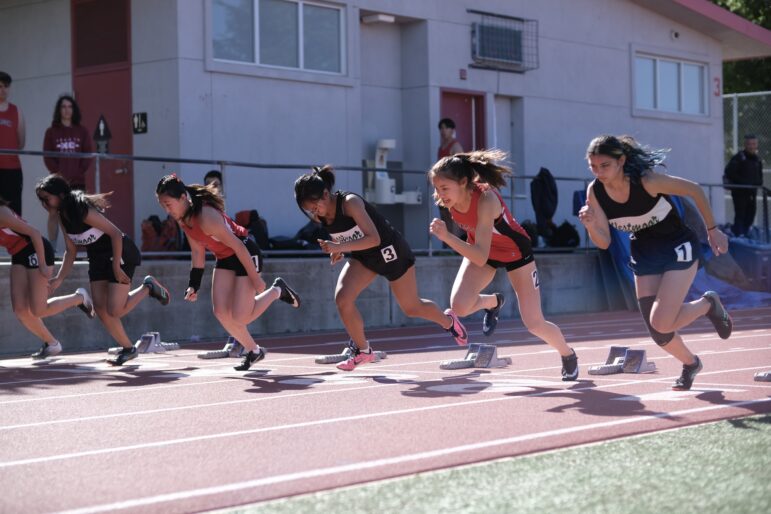
What was the reason you started track & field?
I started off with more distance running, and I think it was just really energizing. It was really a freeing outlet. And I found a lot of self expression through it, and also just a lot of fun. I really enjoyed being outside running, getting exercise and then that sort of translated into a high school career out of it…I think that as I grew up, I was playing soccer…so I think soccer was a sort of a segue into sprints from distance.
What were some of the challenges that you faced during this trip?
I think just a few challenges with injuries and sort of healing and overcoming those but also just mental blockage. I think your mind is a really important thing, especially in the sport of running and that in the past I sort of struggled with being a little intimidated by the competition when I first started going to all these big meets. So just sort of overcoming my own mind and thoughts and worries was a really big thing for me. [To overcome that,] I think [I] just [gave] myself pep talks before races, sort of putting things in perspective. Being like, “it’s only 100 meters, just run as fast as you can, it’ll be over soon, and you got this.” So, just reassuring myself that everything will be okay because it’s been okay before, and obviously big competition will push me to be the best runner I can be.
Does playing this sport help you any way outside of the sport?
It takes a really strong mind to be able to remain calm and do well under high pressure situations. So, sort of being able to deal with those nerves and learning how to deal with being under stressful situations and situations where you need to perform well under pressure has definitely segued into academic aspects of my life.
Jarod Nunnemaker (UCSB Pole Vault)
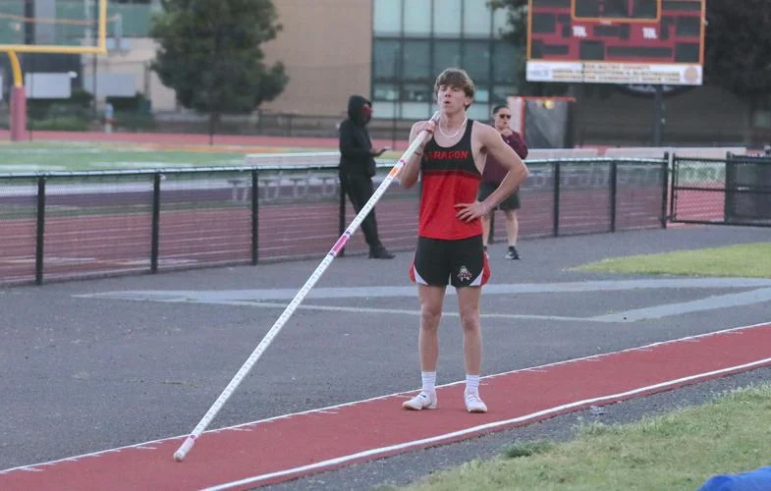
Why did you choose Pole Vaulting?
I think just getting PRs is such a satisfying thing and like, you just get better and it’s just fun vaulting with all your friends, and just slowly bettering yourself and having a clear benchmark for when you are getting better because of your current and past PRs. Right now my PR is 15 ‘7’ which is 4.76m I think, and I’m looking to beat that soon.
Why did you choose UCSB?
A lot of coaches reached out to me. I’ve talked to a lot of coaches during the recruitment process, but ultimately, my dad went to UC Santa Barbara, so he definitely sparked an interest in me. So I was really interested in UC Santa Barbara and also it’s just a really beautiful place, really good weather all the time, and I think I’m going to have a fun time there.
Do you have any favorite memories from pole vaulting at Aragon?
I mean probably just PR competitions. I remember when I first jumped thirteen feet, which is four meters and that’s such a satisfying height to get. You go from three meters which is around ten, eleven, feet all the way to thirteen. Also, another thing that was memorable was how I broke poles. In my career, I broke two poles, and It was very memorable for me because it’s kind of scary.


